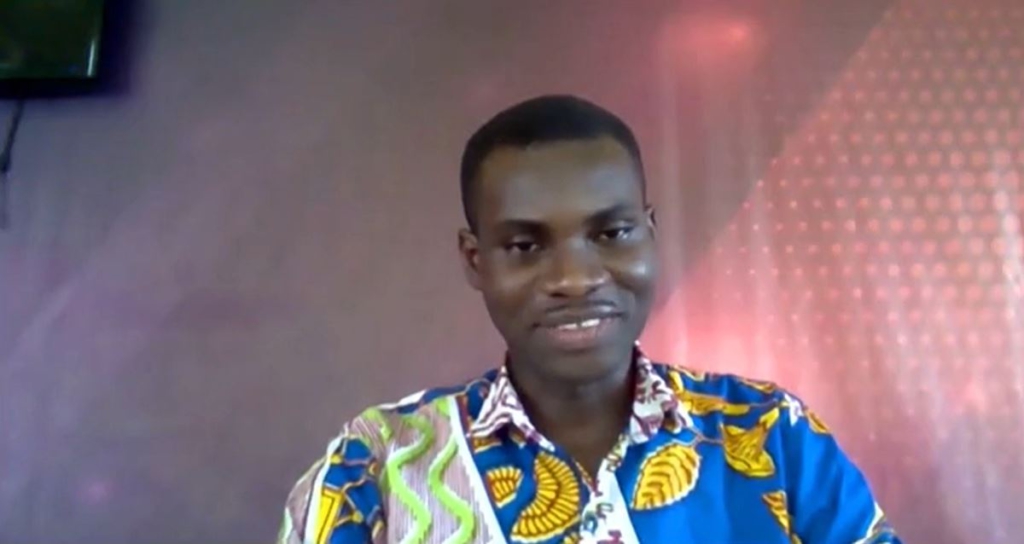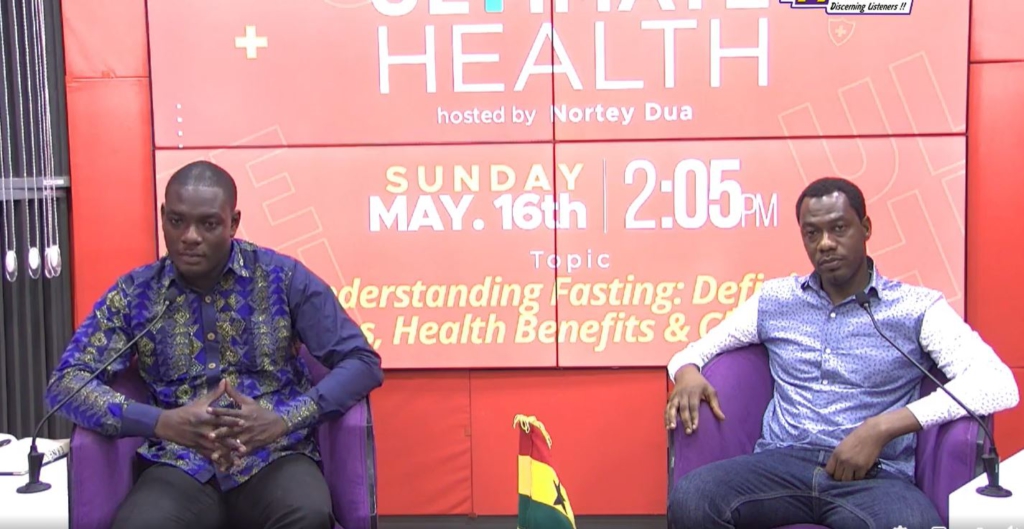The human body requires some form of fuel to grow, stay healthy and fight against diseases, health experts have said.
A registered dietician who appeared on the Ultimate health Show Sunday May 16, Carroll Kwabena Owu explained that the human anatomy relies on glucose derived from the intake of carbohydrate foods to function efficiently.
According to him, anytime the body undergoes fasting, it is denied of the glucose it needs to work efficiently therefore relies on other forms of fuel in the body to function.
“The body requires fuel to function efficiently and the primary fuel for the body is glucose derived from the intake of carbohydrate foods like Yam, rice and the likes. However, when you are fasting, you deprive the body of this glucose so it switches to rely on other fuels to give strength to the body. Protein and fat metabolism and breakdowns are the other fuels the body relies on to function during fasting,” he explained

On his part, a Family Medicine Resident at the Korle-bu teaching hospital, Dr Ernest Anim Opare indicated that the body is also denied of its glucose through prolonged eating intervals or when one is going through a stressful situation.
He elaborated on the processes of the body’s reliance on the liver for glycogen in the absence of food and how it goes on to rely on broken-down fat in the absence of glycogen.
“You can have a difficulty, perhaps you skipped your meal or you are in a very stressful situation and so the glucose that you need is not readily available as experienced in fasting. The first resort is to go to the liver. The liver stores some of the energy which transforms into another form of fuel called glycogen.
“So that primarily is your first baseline. The first go to area for the body is the liver and the liver stores the glycogen. The glycogen is depleted very fast. When that happens you move to your next phase of reserve which is actually not readily available in terms of the glucose or the energy, usually fats, called Ketosis.

A Neurosurgeon at the Korle-bu Teaching Hospitals, Dr Hadi Abdullah added that fasting is a practice that has been with humanity since Adam.
He said the practice usually takes a period less than 24 hours but others extend it to 72 hours and that is when they starve the body with accompanied dangers.
According to him, the human brain functions when there is enough glucose in the body, and there is a limit to how long the body can rely on fatty acids and protein to work efficiently in the absence of food.
Adding that "when there is no more glucose in the body, the brain fails to work and the body becomes weak. “When the body starts using the fatty acids, what happens is that if you continue to starve yourself of food, with time, you have to depend on your body muscles and that is when the dangers of starvation come in" he explained further.
Latest Stories
-
Former King Faisal striker Kwame Peprah likely to leave Kerala Blasters
5 minutes -
Interior Minister raises alarm over surge in unregistered weapons
19 minutes -
Brighton’s Ibrahim Osman returns after Feyenoord loan spell
19 minutes -
Tottenham trio forced to wait for winner’s medal
22 minutes -
AMA decongestion exercise: It will only last for 7 months – former MP Ebenezer Nartey
49 minutes -
Tema fire: Chief Fire Officer joins firefighters to extinguish flames
1 hour -
NPC Ghana reassigns Isaac Tetteh as Media Officer and Administrator for Para-Sport development
1 hour -
Today’s Front pages: Thursday, May 22,2025
2 hours -
Ghana Stock Exchange records over 30% growth in 2025 Q1; best securities market in West Africa
2 hours -
Smirnoff in the Mix Vol. 2: A bold celebration of Ghana’s DJ Culture, Powered by Chichi DJ
2 hours -
Kasapreko to list equities on Ghana Stock Exchange
3 hours -
One arm, full heart: Two para athletes living beyond limbs
3 hours -
Edudzi Tameklo welcomes suspended CJ’s application for injunction; says it’s refreshing
3 hours -
Cedi stability partly due to NPP policies – Prof. Bokpin
3 hours -
April Producer Price Inflation drops to 18.5%
3 hours

